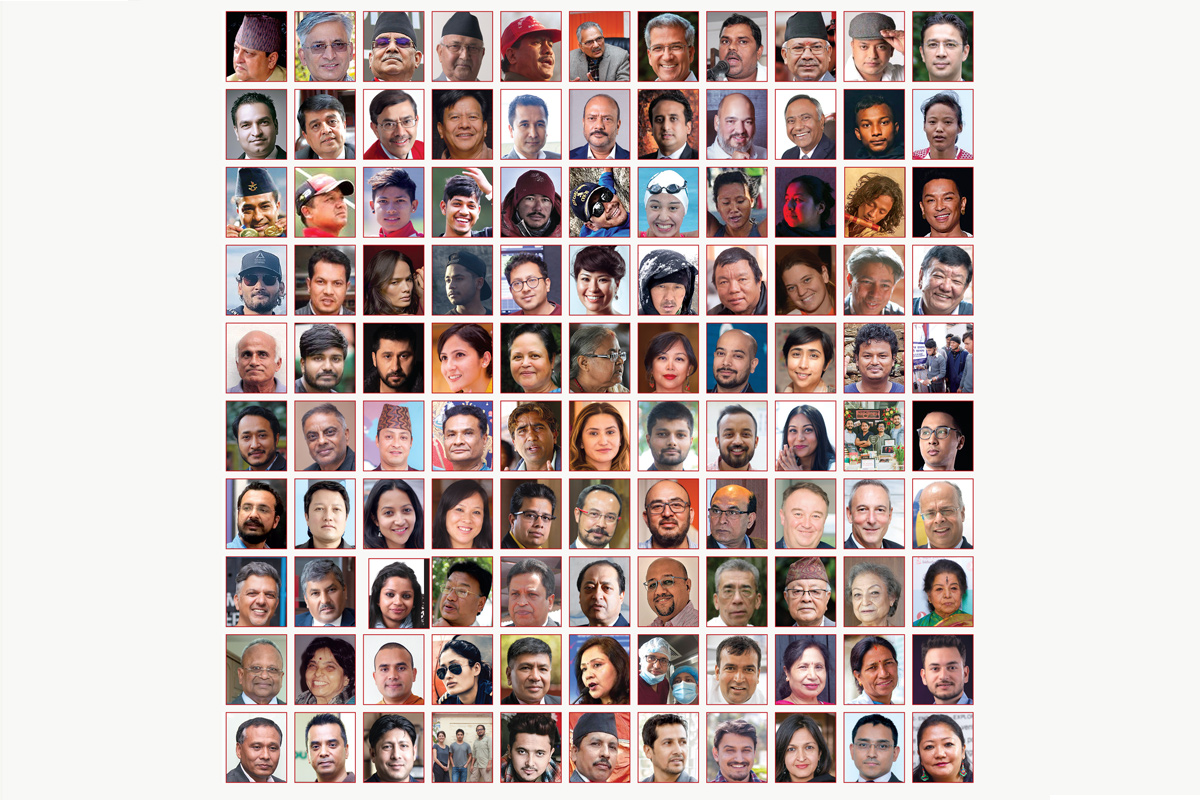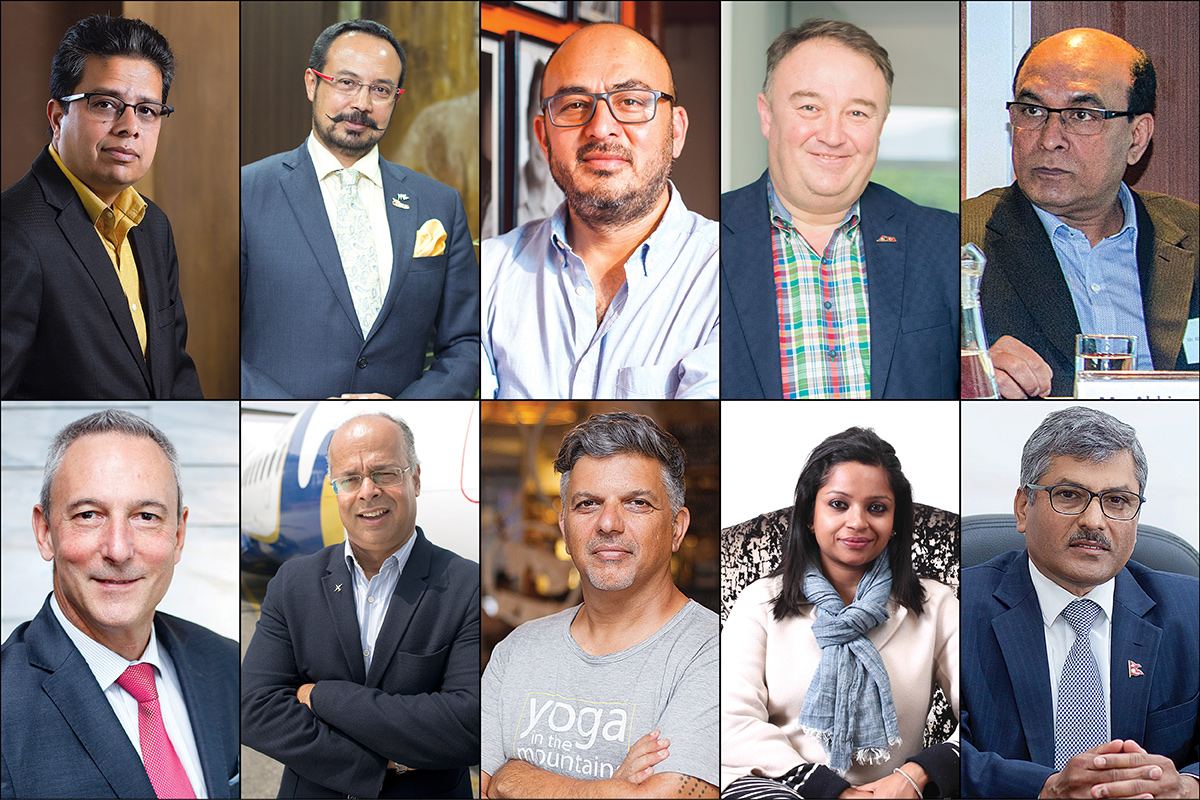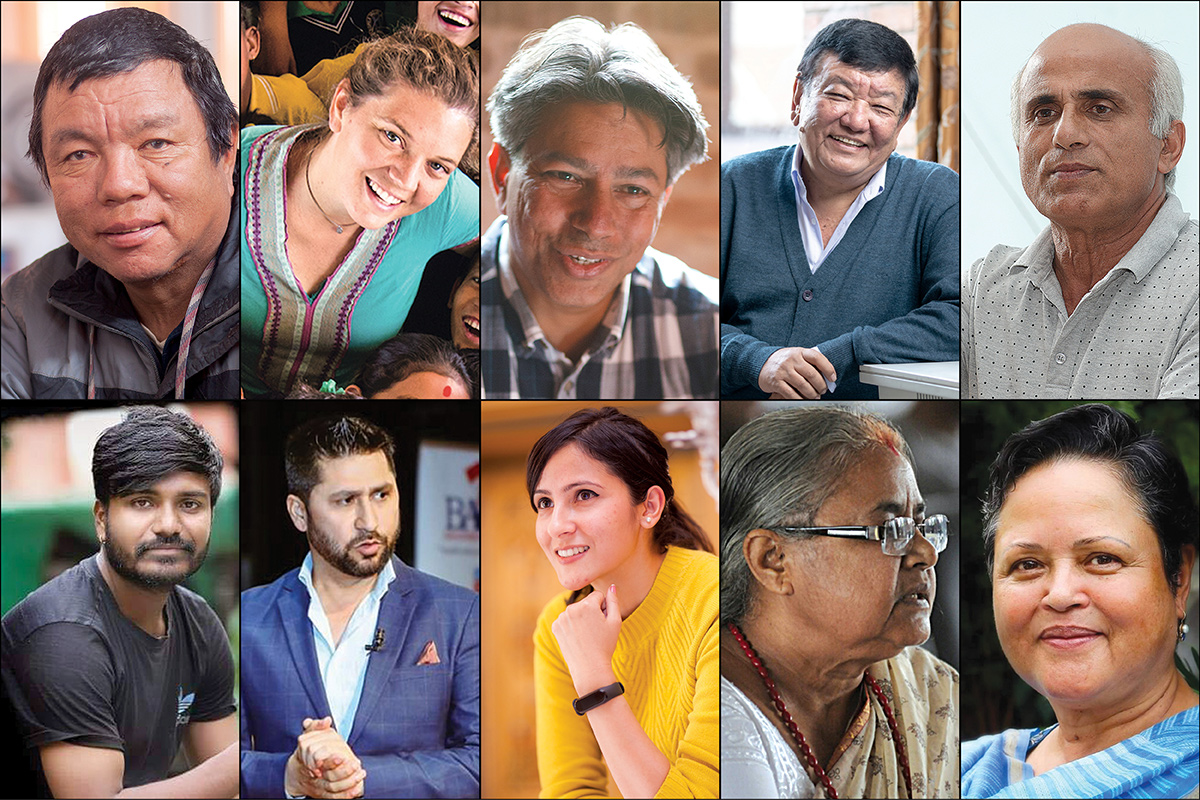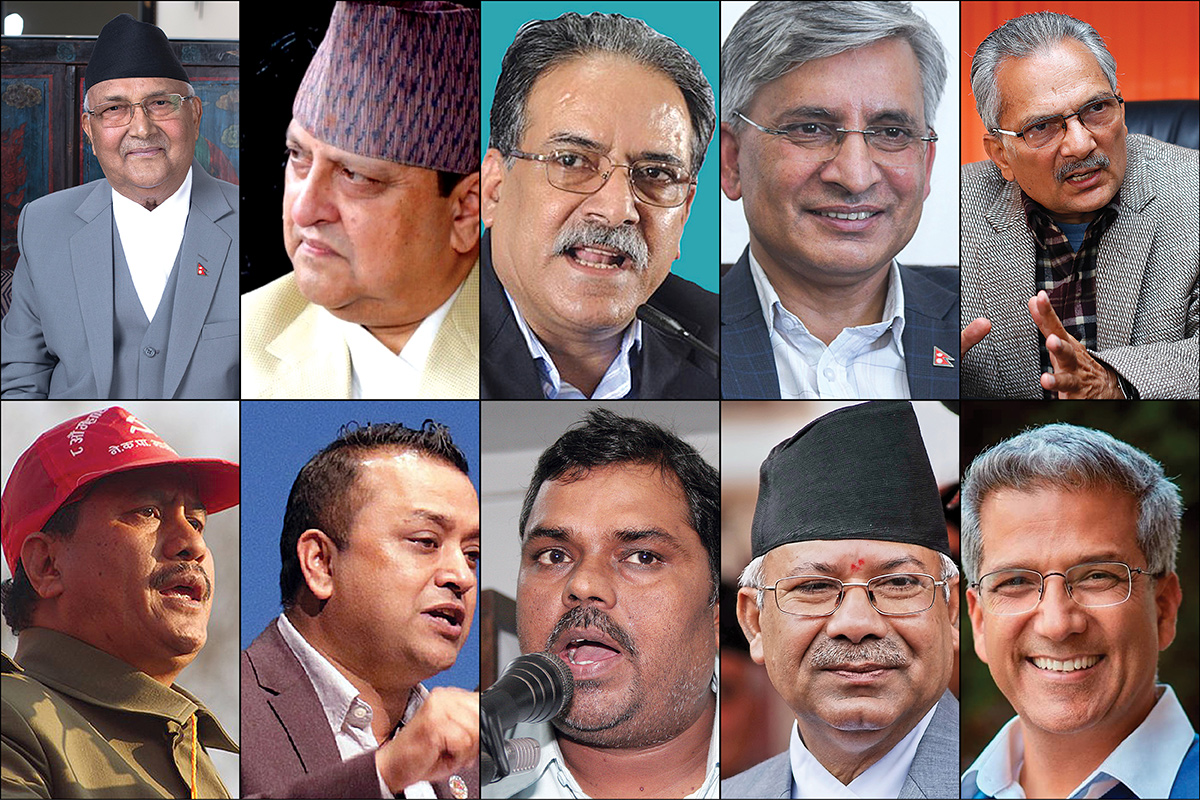
KHADGA PRASAD SHARMA OLI
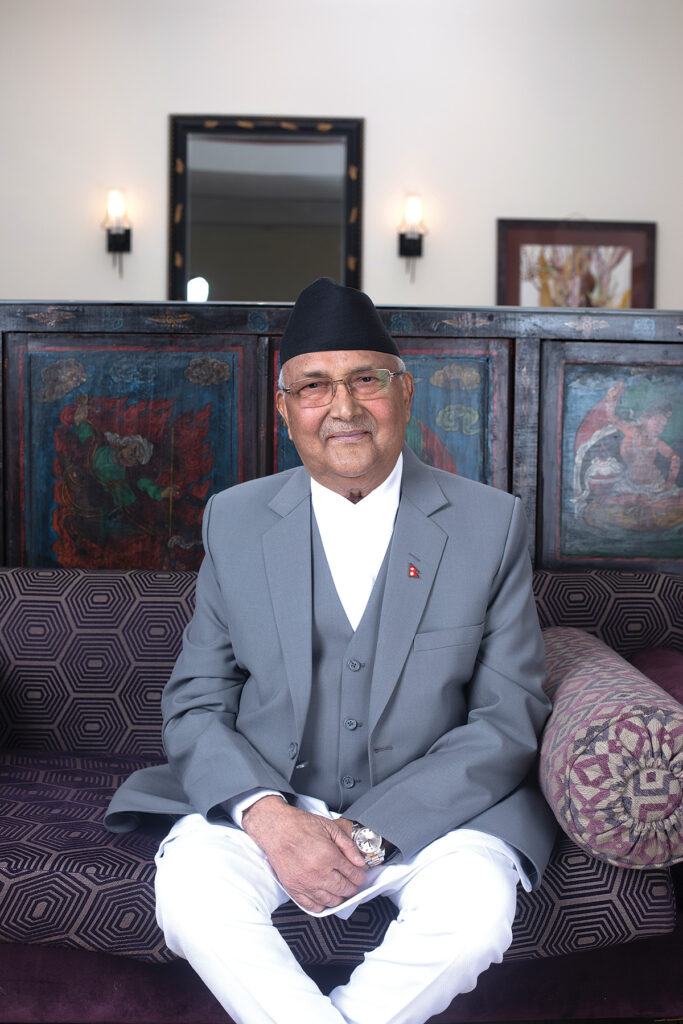 PM KP Sharma Oli is possibly the most read about, talked about and written about person in Nepal right now. The controversial ordinance, alleged unconstitutional House dissolution, conflict within the party and constant power tussle with party leaders have smeared his term as the Prime Minister. Known for his wordplay and wit, Oli’s legacy has been marked by an unwavering attitude, many unsubstantiated claims, favouritism and controversial decisions. He co-chaired the Nepal Communist Party which is the ruling party with Pushpa Kamal Dahal but did not stand tall to his side of the bargain. Political pundits assert that he has put the country in a political limbo by exercising power to serve his own interests, the latest being the elections announcement during an ongoing pandemic.
However, his supporters steadfastly stand to his vision for the development of the country. A man who has defied great odds – personally and professionally - to reach the pinnacle of political success, Oli is a name that will not be easily forgotten by his defenders and his detractors.
PM KP Sharma Oli is possibly the most read about, talked about and written about person in Nepal right now. The controversial ordinance, alleged unconstitutional House dissolution, conflict within the party and constant power tussle with party leaders have smeared his term as the Prime Minister. Known for his wordplay and wit, Oli’s legacy has been marked by an unwavering attitude, many unsubstantiated claims, favouritism and controversial decisions. He co-chaired the Nepal Communist Party which is the ruling party with Pushpa Kamal Dahal but did not stand tall to his side of the bargain. Political pundits assert that he has put the country in a political limbo by exercising power to serve his own interests, the latest being the elections announcement during an ongoing pandemic.
However, his supporters steadfastly stand to his vision for the development of the country. A man who has defied great odds – personally and professionally - to reach the pinnacle of political success, Oli is a name that will not be easily forgotten by his defenders and his detractors.
GYANENDRA SHAH
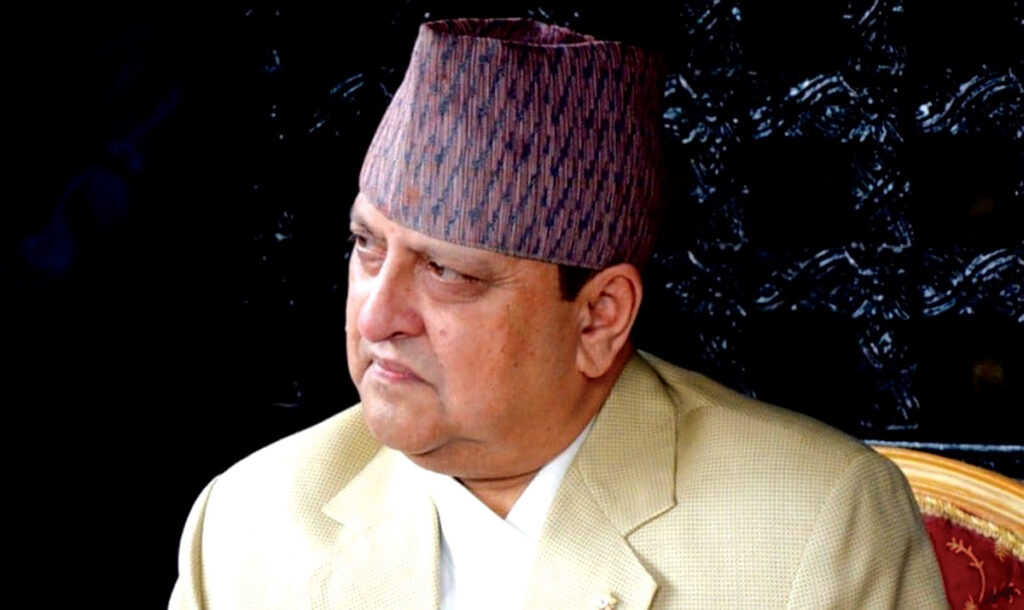 The former king has earned celebrity status with his pictures circulating heavily on social media, be it at the Lord of Drinks or at temples and yagyas. Former royalists, Hindu fundamentalists and the public distressed with the current political state hail him as an alternative force to saving the country. Though he keeps a low profile, his intermittently made political commentary draws attention. The authoritarian demeanour that he portrayed by curtailing the ‘right to information’ of the public and dissolving the government when he was the King of Nepal did not sit well with the citizens resulting in him being ousted and thereby ending the 239-year-old Shah monarchy from the country.
The former king has earned celebrity status with his pictures circulating heavily on social media, be it at the Lord of Drinks or at temples and yagyas. Former royalists, Hindu fundamentalists and the public distressed with the current political state hail him as an alternative force to saving the country. Though he keeps a low profile, his intermittently made political commentary draws attention. The authoritarian demeanour that he portrayed by curtailing the ‘right to information’ of the public and dissolving the government when he was the King of Nepal did not sit well with the citizens resulting in him being ousted and thereby ending the 239-year-old Shah monarchy from the country.
PUSHPA KAMAL DAHAL
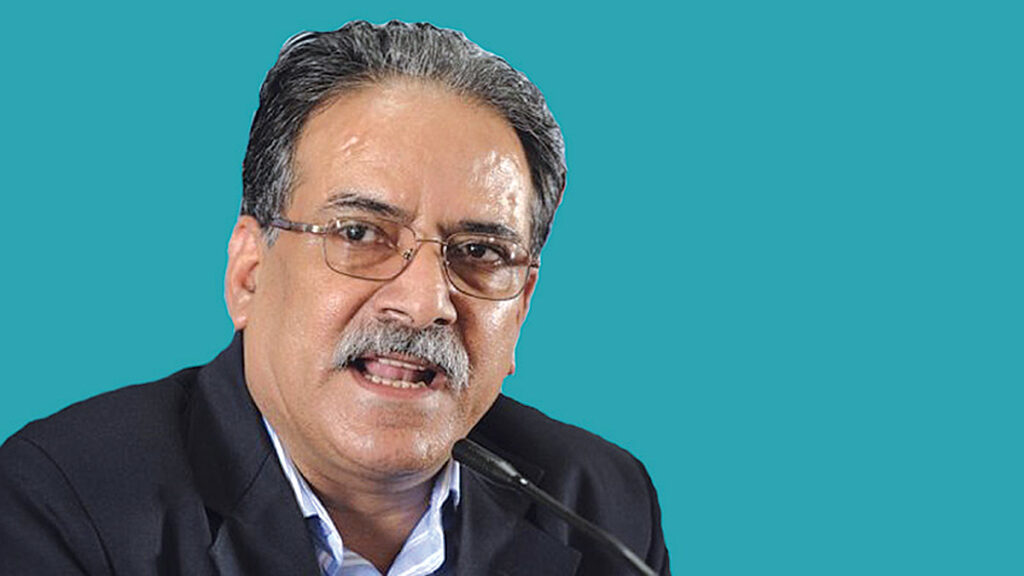 A rebel leader who headed the Maoist insurgency that eventually ended monarchy in Nepal, the two time Prime Minister of Nepal and current Co-Chairman of Nepal Communist Party (NCP), Pushpa Kamal Dahal, is a political persona mired in controversy.
Dahal - more commonly known as Comrade Prachanda - is known for his dry and often ruthless trajectories of political action and has personally suffered great personal tragedy with the loss of his son and daughter.
For the 2017 Nepali Legislative Election, Dahal’s CPN-Maoist Centre party formed an alliance with KP Sharma Oli’s CPN-UML party. On December 7, 2017, he was elected as a member of the House of Representatives after winning the election from Chiwan-3. The two parties won a majority in the House of Representatives and in six of the seven provincial assemblies. The merger of the two parties was announced for April 22, 2018 but was only formed on May 17, 2018 as Nepal Communist Party (NCP). Following the merger, Dahal was named as the joint Chairmen of the party alongside Oli. Today, the same alliance stands at crossroads bringing the two thirds majority government to dissolution.
A rebel leader who headed the Maoist insurgency that eventually ended monarchy in Nepal, the two time Prime Minister of Nepal and current Co-Chairman of Nepal Communist Party (NCP), Pushpa Kamal Dahal, is a political persona mired in controversy.
Dahal - more commonly known as Comrade Prachanda - is known for his dry and often ruthless trajectories of political action and has personally suffered great personal tragedy with the loss of his son and daughter.
For the 2017 Nepali Legislative Election, Dahal’s CPN-Maoist Centre party formed an alliance with KP Sharma Oli’s CPN-UML party. On December 7, 2017, he was elected as a member of the House of Representatives after winning the election from Chiwan-3. The two parties won a majority in the House of Representatives and in six of the seven provincial assemblies. The merger of the two parties was announced for April 22, 2018 but was only formed on May 17, 2018 as Nepal Communist Party (NCP). Following the merger, Dahal was named as the joint Chairmen of the party alongside Oli. Today, the same alliance stands at crossroads bringing the two thirds majority government to dissolution.
BISHNU RIMAL
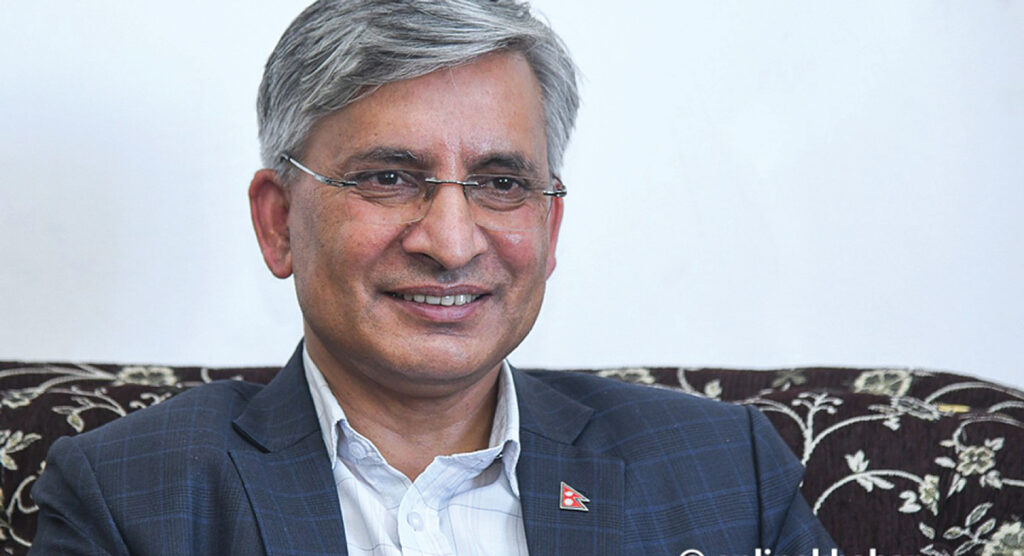 The Chief Advisor to PM KP Sharma Oli ostensibly is the mind behind some of the PM’s major political decisions. He allegedly makes the calls. Rimal entered into politics through the student movement in 1979 and joined the then underground Communist Party of Nepal (Marxist-Leninist). Rimal is also the current patron of the trade union confederation. Soft spoken but with a steely resolve, Rimal does not shine the light on himself, he is a team player and a clear political strategist.
The Chief Advisor to PM KP Sharma Oli ostensibly is the mind behind some of the PM’s major political decisions. He allegedly makes the calls. Rimal entered into politics through the student movement in 1979 and joined the then underground Communist Party of Nepal (Marxist-Leninist). Rimal is also the current patron of the trade union confederation. Soft spoken but with a steely resolve, Rimal does not shine the light on himself, he is a team player and a clear political strategist.
NETRA BIKRAM CHAND
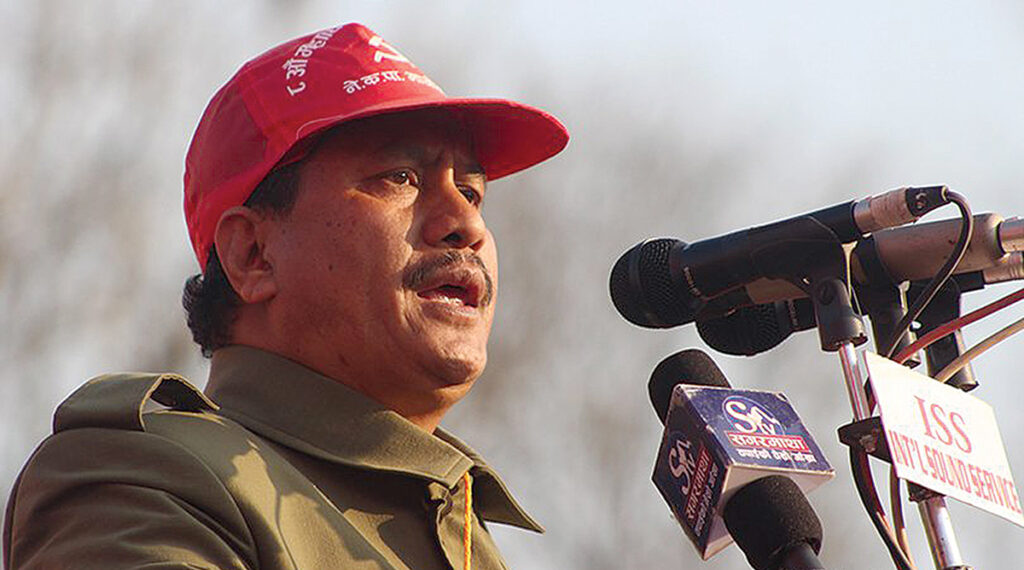 The faction separated from Prachanda-led CPN Maoist Party, Netra Bikram Chand aka Biplav’s party Communist Party of Nepal has been involved in Nepal Bandhs, extortion, strikes, violent acts of protests including planting bombs to settle score with the state. On its part, the state treats him and his party as pariahs since he is a rebel leader who employs violence to get his message across. Netra Bikram Chand started his political journey as a student leader. He was active in grassroot level protests during the civil war alongside Pushpa Kamal Dahal and Ram Bahadur Thapa, fellow Moist leaders. As the war ended and the party joined the peace process, rift among the party leaders led to Biplav accusing Prachanda of deviating from their initial objective and being involved in political warfare. He and Mohan Baidya parted ways from the Prachanda-led party, but again in 2014, he separated ways from Baidya to form the Communist Party of Nepal on November 24, 2014. He is currently underground after a bombing incident in the capital in 2019.
The faction separated from Prachanda-led CPN Maoist Party, Netra Bikram Chand aka Biplav’s party Communist Party of Nepal has been involved in Nepal Bandhs, extortion, strikes, violent acts of protests including planting bombs to settle score with the state. On its part, the state treats him and his party as pariahs since he is a rebel leader who employs violence to get his message across. Netra Bikram Chand started his political journey as a student leader. He was active in grassroot level protests during the civil war alongside Pushpa Kamal Dahal and Ram Bahadur Thapa, fellow Moist leaders. As the war ended and the party joined the peace process, rift among the party leaders led to Biplav accusing Prachanda of deviating from their initial objective and being involved in political warfare. He and Mohan Baidya parted ways from the Prachanda-led party, but again in 2014, he separated ways from Baidya to form the Communist Party of Nepal on November 24, 2014. He is currently underground after a bombing incident in the capital in 2019.
Dr. BABURAM BHATTARAI
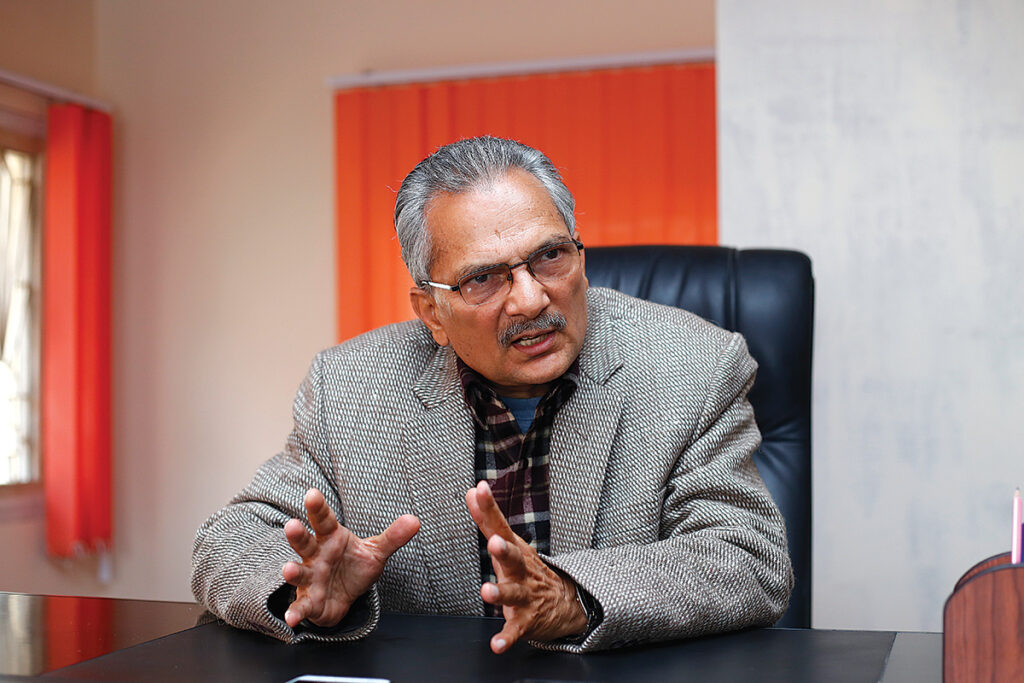 The former Prime Minister and Maoist second-in-command has not gained prominence in the present political climate as he possibly could. After branching out from the Pushpa Kamal Dahal led Maoist party, he formed Naya Shakti Party Nepal, which after merging with Sanghiya Samajbadi Forum Nepal, is now named Samajbadi Party of which he is the Federal Council Chairman. He states that the party propagates neither capitalism nor communism but socialism based on inclusive and participatory democracy.
Baburam Bhattarai is recognised widely as a thinker, scholar, politician, and former guerrilla leader who architected the Maoist insurgency. He recently published a book titled Economic-Political Discussion. Considered an ideologue, Dr. Bhattarai has yet to reinstate his former position in the political forefront of the country.
The former Prime Minister and Maoist second-in-command has not gained prominence in the present political climate as he possibly could. After branching out from the Pushpa Kamal Dahal led Maoist party, he formed Naya Shakti Party Nepal, which after merging with Sanghiya Samajbadi Forum Nepal, is now named Samajbadi Party of which he is the Federal Council Chairman. He states that the party propagates neither capitalism nor communism but socialism based on inclusive and participatory democracy.
Baburam Bhattarai is recognised widely as a thinker, scholar, politician, and former guerrilla leader who architected the Maoist insurgency. He recently published a book titled Economic-Political Discussion. Considered an ideologue, Dr. Bhattarai has yet to reinstate his former position in the political forefront of the country.
RABINDRA MISHRA
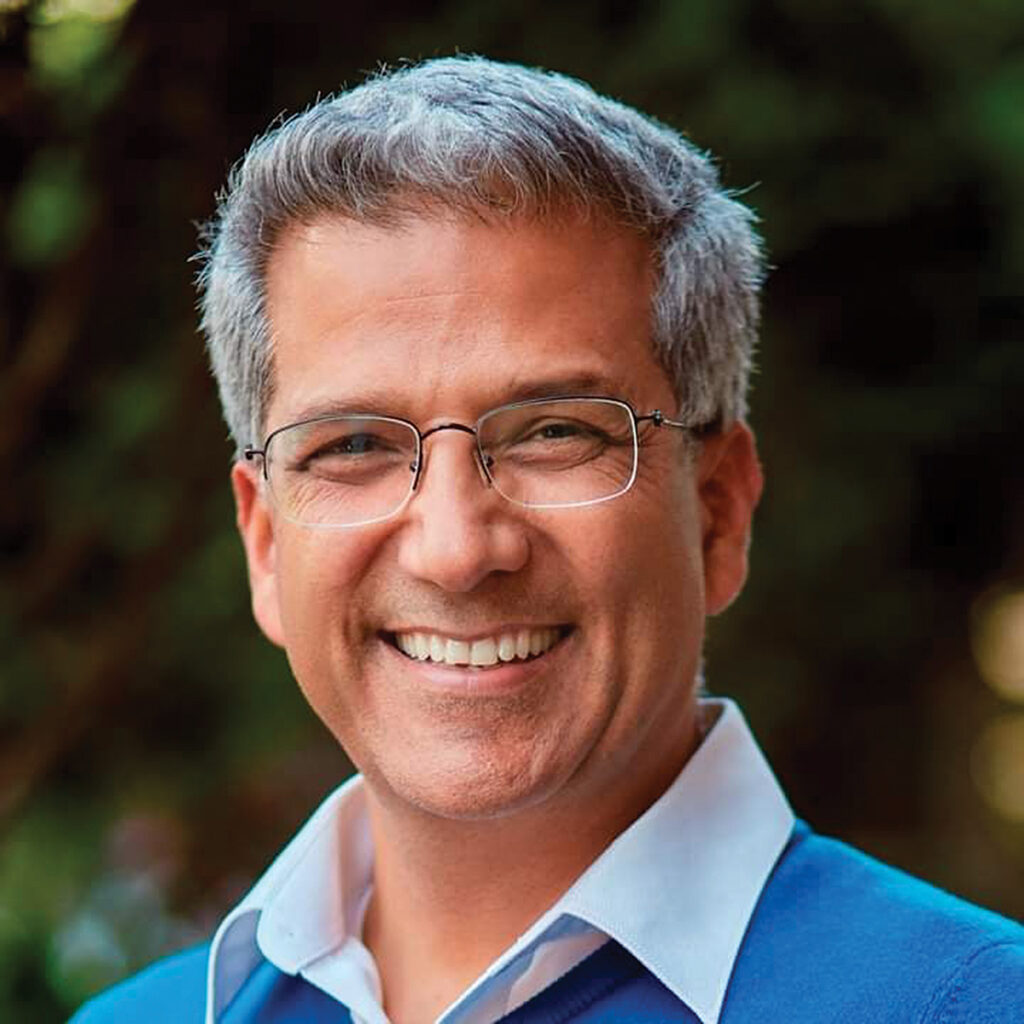 The on-again, off-again merger and disbandment between Mishra’s Sajha Party and Bibeksheel Nepali Party has diluted the gravity that both the parties earned during the onset of their establishment. Nevertheless, Mishra, a journalist-turned-politician considers his party as an alternative political force to challenge and check the government’s work. In Nepal, most politicians have entered into politics because of their involvement in student politics or because they belong to a political family, but Mishra who was working as the editor-in-chief of the BBC Nepali Service before joining politics surprised many by forming his own political party since politics is still considered to be the proverbial “dirty game”. But if a party wants to usher changes, it has to win elections. In the 2017 federal elections, Sajha Party failed to win any seats. It is another story that Mishra almost defeated the heavyweight Prakash Man Singh. Almost. However, the only representation they have is a few members in the provincial assemblies.
The on-again, off-again merger and disbandment between Mishra’s Sajha Party and Bibeksheel Nepali Party has diluted the gravity that both the parties earned during the onset of their establishment. Nevertheless, Mishra, a journalist-turned-politician considers his party as an alternative political force to challenge and check the government’s work. In Nepal, most politicians have entered into politics because of their involvement in student politics or because they belong to a political family, but Mishra who was working as the editor-in-chief of the BBC Nepali Service before joining politics surprised many by forming his own political party since politics is still considered to be the proverbial “dirty game”. But if a party wants to usher changes, it has to win elections. In the 2017 federal elections, Sajha Party failed to win any seats. It is another story that Mishra almost defeated the heavyweight Prakash Man Singh. Almost. However, the only representation they have is a few members in the provincial assemblies.
UPENDRA YADAV
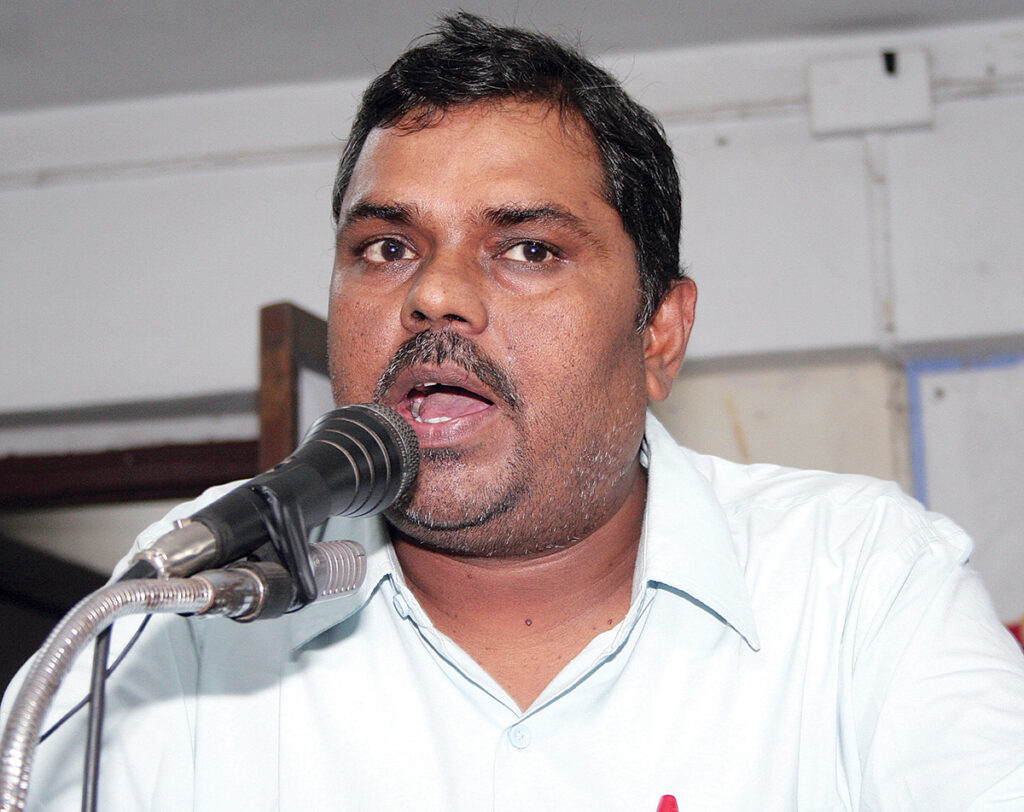 A former school teacher turned revolutionary Maoist, the advocate of the Madhesi movement, Upendra Yadav has handled various portfolios under the KP Oli-led government. He is emblematic of the power that rests with Madhesh based politicians to make or break the central government.
When Upendra Yadav was the Deputy Prime Minister and Minister of Law, Justice and Parliamentary Affairs he resigned from his post citing the fact that KP Oli’s government did not address his concerns of constitutional amendment. Another major reason is said to be the cabinet reshuffle without his consultation. More importantly, from Minister for Health and Population, he was made the Minister for Law overnight without any prior notification and that too while he was in Delhi to attend a regional conference organised by WHO.
Upendra Yadav is the Chairman of Samajbadi Party, a party formed after the merger of Yadav-led Sanghiya Samajwadi Forum Nepal and Baburam Bhattarai-led Naya Shakti Nepal.
A former school teacher turned revolutionary Maoist, the advocate of the Madhesi movement, Upendra Yadav has handled various portfolios under the KP Oli-led government. He is emblematic of the power that rests with Madhesh based politicians to make or break the central government.
When Upendra Yadav was the Deputy Prime Minister and Minister of Law, Justice and Parliamentary Affairs he resigned from his post citing the fact that KP Oli’s government did not address his concerns of constitutional amendment. Another major reason is said to be the cabinet reshuffle without his consultation. More importantly, from Minister for Health and Population, he was made the Minister for Law overnight without any prior notification and that too while he was in Delhi to attend a regional conference organised by WHO.
Upendra Yadav is the Chairman of Samajbadi Party, a party formed after the merger of Yadav-led Sanghiya Samajwadi Forum Nepal and Baburam Bhattarai-led Naya Shakti Nepal.
MADHAV KUMAR NEPAL
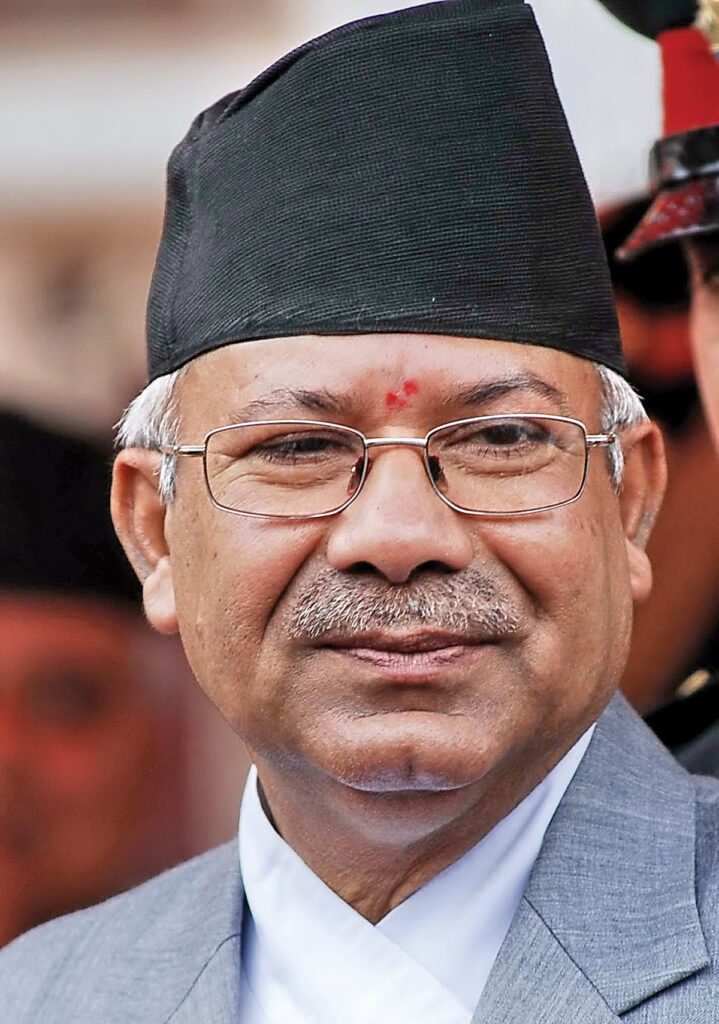 A senior politician and former Prime Minister, Madhav Nepal is the new Chairman of Nepal Communist Party, the ruling party in Nepal after a total of 315 Central Committee Members voted in favour of him thereby replacing PM Oli. Breathing life to the popular saying ‘my enemy’s enemy is my friend’ the seasoned politician joined hands with Pushpa Kamal Dahal, both disgruntled with PM Oli. Considered strange bedfellows since both come from different political school of thoughts, Dahal and Nepal now have the job to strengthen the Nepal Communist Party which has become disorderly with the power tussle among senior party leaders. But that is easier said than done say party insiders and political analysts since clash of ideologies might surface as already evident between Dahal-Oli and Nepal-Oli.
A senior politician and former Prime Minister, Madhav Nepal is the new Chairman of Nepal Communist Party, the ruling party in Nepal after a total of 315 Central Committee Members voted in favour of him thereby replacing PM Oli. Breathing life to the popular saying ‘my enemy’s enemy is my friend’ the seasoned politician joined hands with Pushpa Kamal Dahal, both disgruntled with PM Oli. Considered strange bedfellows since both come from different political school of thoughts, Dahal and Nepal now have the job to strengthen the Nepal Communist Party which has become disorderly with the power tussle among senior party leaders. But that is easier said than done say party insiders and political analysts since clash of ideologies might surface as already evident between Dahal-Oli and Nepal-Oli.
GAGAN THAPA
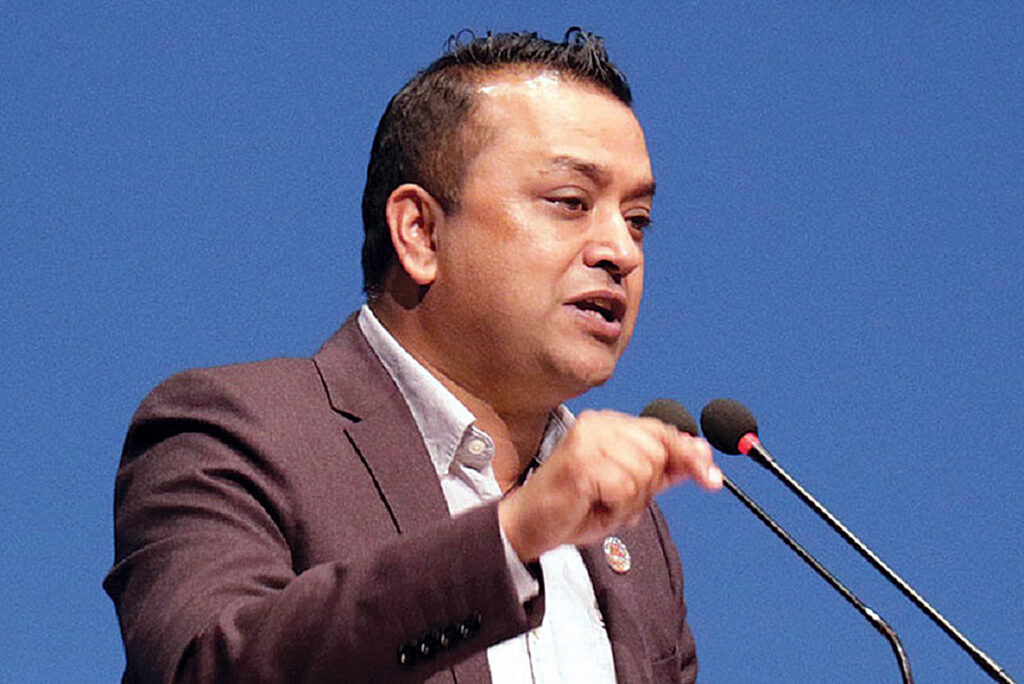 Nepali Congress youth leader and former Minister for Health and Population, Gagan Thapa has established himself as a fiery orator and politician who would even go against his party seniors to stand for what he believes in. True to the nature of an opposition party leader, NC Central Committee member Thapa has frequently vocalised his discontentment over the inefficiency of the NCP-led government over a multiple issues like corruption in the time of Covid 19, Baskota case, Baluwatar land scam, PM Oli’s remarks on Ayodhya among others. As with most politicians, Thapa likes to indulge in ad hominem mudslinging while making remarks on fellow politicians, for e.g. Thapa famously called President Bidhya Devi Bhandari “Queen Imposter” highlighting her incompetence to behave as a neutral head of state.
The former student leader turned politician, Thapa tasted victory during the second phase of parliamentary and federal elections in 2017 and constituent assembly election in 2013 when he ran from Kathmandu constituency 4. He wanted to contest for the Chief Minister of Province 3 but his party thought otherwise.
Interestingly, he is one of the permanent faces in the House of Representatives when the parliament is in session. He is one of the first politicians to advocate for EVs in Nepal by calling it a matter of urgency than a product of luxury. In 2019 he took a short course on “Global Leadership and Public Policy for the 21st Century” at Harvard Kennedy School. He is considered a progressive politician and resonates well with the youth.
Nepali Congress youth leader and former Minister for Health and Population, Gagan Thapa has established himself as a fiery orator and politician who would even go against his party seniors to stand for what he believes in. True to the nature of an opposition party leader, NC Central Committee member Thapa has frequently vocalised his discontentment over the inefficiency of the NCP-led government over a multiple issues like corruption in the time of Covid 19, Baskota case, Baluwatar land scam, PM Oli’s remarks on Ayodhya among others. As with most politicians, Thapa likes to indulge in ad hominem mudslinging while making remarks on fellow politicians, for e.g. Thapa famously called President Bidhya Devi Bhandari “Queen Imposter” highlighting her incompetence to behave as a neutral head of state.
The former student leader turned politician, Thapa tasted victory during the second phase of parliamentary and federal elections in 2017 and constituent assembly election in 2013 when he ran from Kathmandu constituency 4. He wanted to contest for the Chief Minister of Province 3 but his party thought otherwise.
Interestingly, he is one of the permanent faces in the House of Representatives when the parliament is in session. He is one of the first politicians to advocate for EVs in Nepal by calling it a matter of urgency than a product of luxury. In 2019 he took a short course on “Global Leadership and Public Policy for the 21st Century” at Harvard Kennedy School. He is considered a progressive politician and resonates well with the youth.
Published Date: February 23, 2021, 12:00 am
Post Comment
E-Magazine
RELATED People To Watch


